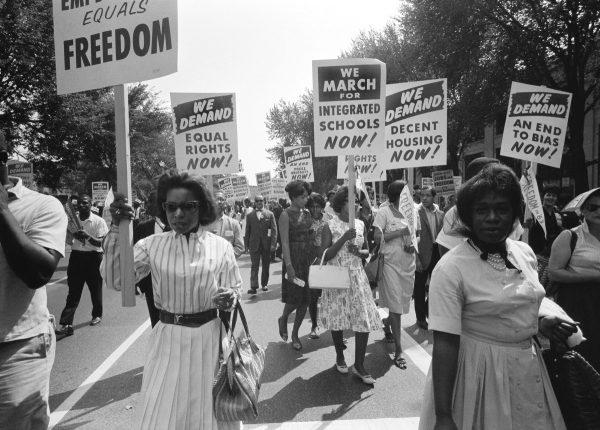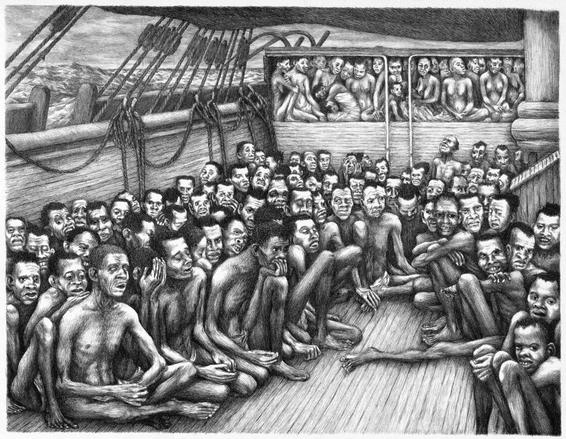I know many of you may consider this a highly controversial subject, but believe me when I say there are lessons to be had in our disagreements. I know the topic is being brought up for a reason, so please, please, please don’t shoot the messenger.
Me: You know, I was wondering about something. Sometimes I think that the black, the African Americans, whatever I’m supposed to call them, are one of the most evolved races on the planet. They’ve been around much longer than most of the other races, certainly more than the fair-skinned, blue eyed ones. So, is that true? Are they here to teach us about things like compassion and acceptance? In other words, are they more spiritually evolved?
Erik: Yes. Looking at the Africans and their culture and their journeys, they’ve stayed more as a tribe than any other culture, even when compared to the Aborigines. But we have to group them again with, not just Africans, but with tribal people, so this still does include the Aborigines, the Native Americans, the older civilizations like the Mayans, um—
Me: Some Asian cultures, I guess?
Erik (tilting his head): Not so much.
Jamie laughs at his sing-song tone.
Me: Okay.
Erik: These are people that lived by the land and for the land. Most of when Europe started to develop and when Greek and even the Egyptians—they were more intrigued with social hierarchy. They were more attracted to building, competition, growth, conquering, but if you notice the tribal people aren’t interested in conquering. When I’m talking about the Mayans, I’m talking about early.
Me: Yeah, of course.
Erik: Before they started to create the whole build and conquer shit. But the Egyptians kind of evolved right into it. “Look what I can do.”
Jamie (Laughing and mimicking Erik): “Look what I can do!”
Erik: But the tribal nations don’t do that. They don’t do the hierarchy; they don’t do social competition; they embrace everybody in the tribe as being equal and valuable. Even though they choose a leader, the whole group is the leader. They move in masses. They live for the land and by the land. These are the people that have something to teach us. Let’s look at the Hopi.
Me: Oh, yes! Exactly. Well, this whole change we created in the African Americans, though. We ripped them from their homeland. We enslaved them, obviously against their will. We treated them so cruelly. And now how do we make it up to them? We’ve enslaved them in another way. I may be wrong, but in my opinion, we’ve turned some of them into a class of the professional poor, giving them just enough to survive and not enough to thrive and rise above and make something of themselves. Instead, they’re stuck in the entitlement class. Of course, not only African Americans are in this class. In fact there are more Caucasians on welfare and food stamps than African Americans. Still, I think society is responsible in part for the breakdown of the African American family unit and perhaps even their tribal unity—that which made them more evolved than other races. So, is that something that was meant to be? Are we to learn something from this or is it just, “Wow, we f*#@ed up!”
Erik: It’s both. We fucked up all right, but at the same time, you know, we did what parents do when they have children. We shape them in our own image thinking that’s what the fuck we should do when really we should just let them be who they are.
Me: Yes, and most of the time children are more pure in spirit than their parents, and we take them down a few notches, sucking some of that childlike wonderment out of them.
Erik: Right.
Me: And we enabled the blacks by trying to form them into our image instead of their more highly evolved one from their ancestral background. We enabled them because we felt so guilty, rightfully so, we enslaved them in another way.
Erik: Yes.
Me: So sad.
Erik: We’ll be coming out of it as a culture, Mom.
Me: I hope so, Erik. So, what’s the lesson we’re to learn? (pause) On both sides!
(Long pause)
Jamie: Hm.
(Pause)
Jamie: Erik was talking about Harriet Tubman.
Me: Oh, we’re going to interview her soon.
Jamie: He was talking about her and trying to keep the communities together, but there was so much fear and depression and division that it did not happen.
Me: Yeah.
Erik: With that marker as seeing African Americans as the most prized position as president and first wife and watching how they grow their family and how they are as a unit, this will give a new face to millions of African Americans in the United States, and they will start to change. It’s really where we’re right at the beginning—the lesson of us learning not force people to become us, our own image. It’s kind of like the Montessori way. Way to go, Maria. Maria Montessori.
Me: Yeah! Kudos, Maria!
Erik: And the lesson for the African American was and still is—not to the extent of taking up arms and fighting—but setting boundaries and saying no. They need to say, “I won’t accept this,” but not with aggression. They need to learn to do this with love. This huge anguish that they’re carrying is not really letting them take this lesson on with love. They’re really taking it on with a bit of anger.
Me: I see. I had another thought, but I can’t remember it. God, I can’t seem to hold on to my thought today! They’re little fleeting things, like gnats buzzing about my face.
Erik: That’s a lack of nutrition, Mom, cuz you don’t eat breakfast.
Me: I know.
Jamie: You didn’t eat breakfast?
Me: No. I almost never do, unless you count my latte.
Jamie: Why not?
Me: I don’t know. I’m just not hungry, I guess. Oh, here’s what it was; here’s what it was! It’s so ironic that here we shackled them so long ago in the 1600s and now we’re shackling them in other ways socioeconomically. We think we’re doing them a favor, but we’re not.
Erik: It is very sad, isn’t it?
Me: Yep, but we’re eternal beings, so I guess everything is going to turn out fine.



